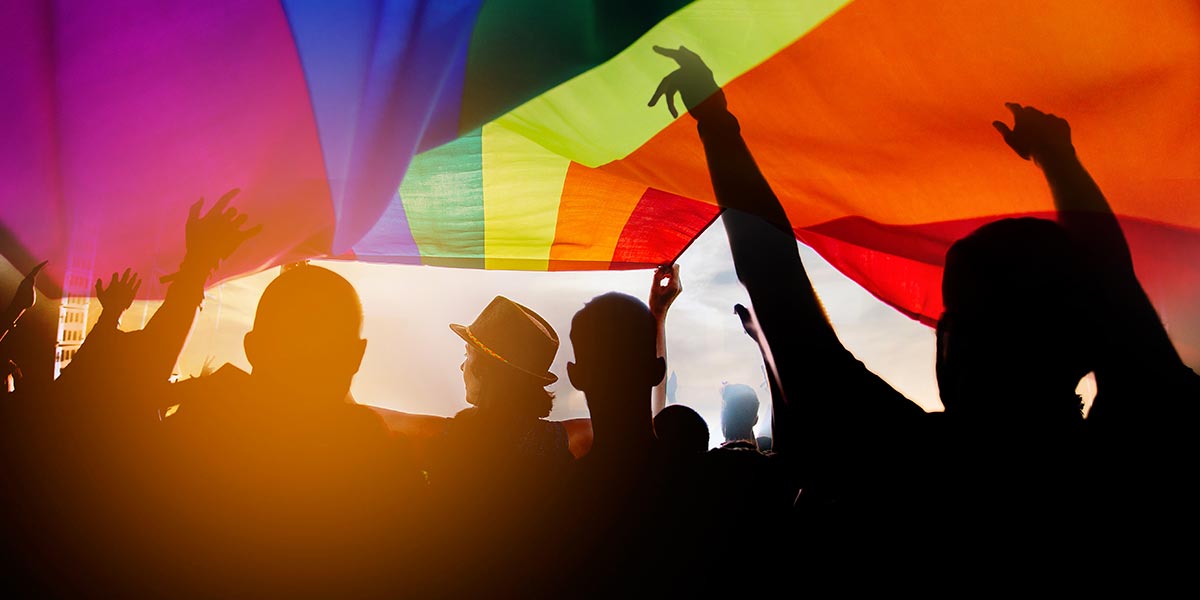Survey: LGBTQ South Africans facing mental health crisis

A survey of the social cohesion, integration and the everyday experience of the LGBT+ community in South Africa has made findings that the authors say require urgent attention from both policymakers and broader society.
The findings are contained in a report by the Inclusive Society Institute, authored by Mpho Buntse and Daryl Swanepoel, released this week. Among the key findings:
• The majority of the LGBT+ community members surveyed (86%) are aware of their constitutional and legislative rights; yet far fewer (59%) believe that these rights are in themselves adequate. At the same time, most respondents (77%) believe that government is not doing enough to guarantee their rights relating to gender identity and sexual orientation (77%), which suggests a perceived failure in implementation.
• In terms of social cohesion and integration, the survey found that the majority (72%) of the LGBT+ community experienced some form of discrimination in terms of social integration. Of those who confirmed having experienced discrimination, 69% experienced it in the field of education and youth development, 48% in accessing healthcare, 65% with regard to safety, security and psychosocial services, 22% in accessing housing, 31% in accessing essential services, and 56% in job creation, employment and seeking asylum.
According to the report, the private sector (31%) seems slightly less inclined than government departments (36%) to discriminate against this community. In the main, however, acts of discrimination appear to be individually driven, with 78% of respondents suggesting that discrimination against the LGBT+ community emanates from individuals.
A perturbing finding was that 59% of those surveyed still experienced discrimination when wanting to express or participate in their own cultural practices, while a very high 67% felt discriminated against when wanting to express their personal religious beliefs.
• Whilst attitudes have certainly come a long way since the advent of democracy in 1994, there remains much room for further improvement. Some 78% of survey respondents believe that tolerance towards the LGBT+ community has improved, but only 5% believe that there is complete tolerance. A further 67% registered positive attitudinal changes ranging from some significant change to major shifts. Only 8% believe that there has been no real attitudinal change.
Once again, the private sector appears to do better than the public sphere. As opposed to the 54% of respondents who believe they are treated fairly by government when wanting to access services, a solid 70% feel this way about accessing private-sector products or services.
• Generally, the LGBT+ community seem to be enjoying acceptance from family and friends. Altogether 65% indicated that their families had accepted them for their gender identity and/or sexual orientation, and 86% are content with their relationships with family and friends.
Nevertheless, it remains concerning that 18% of respondents still appear to experience abuse in their domestic environment. Of these, 39% experience physical and 92% psychological abuse, with 24% being subjected to other types of abuse, such as the withholding of finances.
• The most disturbing finding of the survey relates to health, particularly mental health. Altogether 24% of survey respondents indicated that they were suffering from some form of medical condition. When asked to specify, 41% registered the presence of a mental health condition. Upon delving deeper, mental health issues appear to be a challenge for 53% of respondents in the below-26 age bracket. The Inclusive Society Institute believes that this specific result requires urgent attention, as it could suggest a potential mental health crisis in the making.
Recommendations and way forward
“The survey findings suggest material ongoing disparity between the guaranteeing of the rights of the LGBT+ community in existing legal frameworks on the one hand and the practical implementation and execution of those rights in both the public and private spheres on the other,” say the authors.
To this end, the Inclusive Society Institute has proposed that the authorities embark on a systematic programme to sensitise both the civil service and the broader public to their legal obligations towards the LGBT+ community, but particularly also to the need for an ethos of inclusivity and solidarity.
Further specific recommendations of the report include:
• That the Department of Public Service and Administration design and implement an awareness programme aimed at sensitising the public service as to the LGBT+ community’s rights to receive equal and quality service from all civil servants. This should be accompanied by a reporting and monitoring mechanism aimed at ensuring public officials’ adherence to their constitutional and legislative obligations.
• That, more generally, all government departments and provinces ensure that the issues of the LGBT+ community are mainstreamed in their respective policies.
• That the Commission for the Promotion and Protection of Cultural, Religious and Linguistic Communities prioritise engagements with the religious and cultural fraternities aimed at eliminating vestiges of discrimination. In this regard, other chapter 9 institutions such as the South African Human Rights Commission and the Commission for Gender Equality also have a role to play in creating awareness and monitoring discrimination.
• That the broader public also consider running general awareness and social behaviour change campaigns in their respective spheres as a critical vehicle to promote and advance the rights of LGBT+ persons, particularly given the high levels of discrimination experienced at an individual level.
• That a study be commissioned by, among others, the Department of Health to gain a better understanding of the causes of mental health issues experienced by specifically the under-26 section of this population, and to consider potential remedial policies and interventions.
The results are based on an online survey which ran from Wednesday, 10 June 2020 to Monday, 22 June 2020. There were 288 valid responses which the institute states were an adequate sample size.
“The concerns raised in this survey have compelled the Inclusive Society Institute to deepen its research into, and develop potential programmes to help deal with, the causes of the obstacles facing the country’s LGBT+ community,” say the researchers.
Leave a Reply